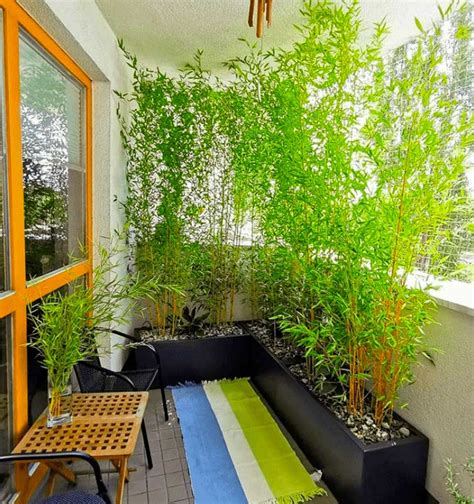Essential Balcony Plant Care Tips for Busy Schedules
Introduction: Maintaining a thriving balcony garden with a busy schedule can feel overwhelming. However, with the right strategies, it’s possible to enjoy a flourishing balcony garden without spending hours on maintenance. This article covers practical hacks for plant care, ensuring even those with limited time can keep their plants healthy and vibrant. By focusing on easy-to-implement tips, time-saving techniques, and common misconceptions, you can optimize your balcony garden effortlessly.
Key Concepts for Balcony Plant Care
Before diving into specific hacks, it’s important to understand some core concepts:
- Plant selection: Choose low-maintenance plants suited to your environment, such as succulents or drought-resistant flowers.
- Container gardening: Containers allow you to control the soil and water levels easily, making plant care more manageable.
- Watering efficiency: Water management is crucial—overwatering or underwatering can lead to plant health issues.
- Sunlight exposure: Knowing the sunlight needs of your plants helps you arrange them for optimal growth.
Historical Context of Urban Balcony Gardening
Balcony gardening has been a part of urban living for centuries. In ancient Roman and Persian cultures, citizens grew medicinal herbs and decorative plants in small, elevated spaces. Modern balcony gardening, however, emerged out of necessity in crowded cities. With urbanization limiting access to outdoor green spaces, balconies became a refuge for nature lovers. Today, this trend has evolved with an emphasis on both sustainability and convenience.
Current State of Balcony Gardening: Opportunities and Challenges
With more people living in urban apartments, the demand for balcony-friendly plant care methods has increased. The rise of indoor and outdoor plant trends means more people are exploring ways to create green spaces in their homes. Yet, the biggest challenge remains time management. Many urban dwellers struggle to maintain their plants due to hectic work schedules and other commitments.
Common Challenges:
- Lack of time for consistent watering and maintenance
- Limited knowledge about plant care, leading to poor plant selection
- Space constraints on balconies, limiting plant variety
Opportunities:
- Technological advancements in automated irrigation and smart gardening tools
- Community-driven gardening trends such as seed exchanges and online support groups
Practical Applications: Time-Saving Plant Care Hacks
Here are some specific, easy-to-implement hacks to keep your balcony plants thriving, even with a tight schedule:
- Self-watering pots: These containers have reservoirs that hold water, gradually hydrating the plants over time, reducing the frequency of watering.
- Mulching: Adding a layer of mulch to the soil helps retain moisture, preventing the soil from drying out too quickly.
- Group plants by water needs: Place plants with similar water requirements together to make your watering routine more efficient.
- Use drought-resistant plants: Succulents, lavender, and other hardy plants require minimal water, making them ideal for busy schedules.
- Install drip irrigation systems: These systems automate watering, ensuring plants get the right amount of water with minimal effort.
Case Studies: Successful Balcony Gardens
Case Study 1: The Minimalist’s Balcony Garden
Rachel, a marketing professional with a hectic schedule, struggled to maintain her plants. She switched to a collection of succulents and cacti in self-watering pots, cutting her maintenance time by more than half. Her garden now thrives with minimal attention.
Case Study 2: Automated Watering in an Urban Garden
John, an IT consultant, installed a simple drip irrigation system on his small balcony. Combined with smart soil sensors, the system monitors moisture levels and waters his plants automatically. This setup has drastically improved the health of his plants without requiring him to water them manually.
Stakeholder Analysis: Who Benefits from Balcony Gardening?
Homeowners and Renters: Balcony gardens provide mental health benefits and improve air quality. Plants also offer aesthetic value, making homes more inviting.
Urban Communities: Green balconies contribute to urban biodiversity and help counteract the heat island effect.
Environmental Organizations: Balcony gardening promotes sustainability by encouraging people to grow their own food and reduce their environmental footprint.
Implementation Guidelines for Balcony Gardens
Here’s a step-by-step guide to implementing your balcony garden care routine:
- Assess sunlight and space: Determine how much sunlight your balcony gets daily and plan accordingly.
- Choose low-maintenance plants: Opt for drought-resistant species or plants with lower water needs.
- Invest in automated solutions: Set up self-watering systems or drip irrigation to reduce manual labor.
- Schedule maintenance tasks: Use a calendar to remind yourself of watering, pruning, and fertilizing routines.
Ethical Considerations in Urban Gardening
Urban gardening is not without ethical concerns. It’s important to source plants responsibly, avoiding overharvested or endangered species. Additionally, the use of certain chemical fertilizers and pesticides in balcony gardens can impact local ecosystems, especially if rainwater runoff carries these chemicals into nearby water sources.
Sustainable Practices:
- Use organic fertilizers and pesticides.
- Recycle containers and upcycle old materials for garden use.
- Compost kitchen waste to create a nutrient-rich growing medium.
Limitations and Future Research in Balcony Plant Care
Despite the abundance of tips and tools available, balcony gardening has its limitations. Factors such as extreme weather conditions, limited space, and insufficient sunlight can still pose challenges. Future research could explore more advanced plant-care technologies, such as solar-powered watering systems or AI-driven plant care apps, which can monitor and adjust conditions based on real-time data.
Areas for Future Research:
- Developing new plant varieties tailored for urban balcony conditions
- Exploring vertical gardening solutions to maximize limited space
- Creating more eco-friendly irrigation and fertilization systems
Expert Commentary on Balcony Gardening
As urbanization continues to grow, the importance of balcony gardening will only increase. According to Dr. Emily Watson, an urban ecology expert, “Balcony gardening is a powerful tool for enhancing biodiversity in cities. With minimal effort, people can create habitats for pollinators and contribute to the local ecosystem.” John Carter, a professional landscape architect, adds, “The key to success is choosing the right plants and using tools that automate tasks like watering. For busy individuals, time-saving hacks make all the difference.”
These expert insights highlight the evolving nature of urban gardening and emphasize the role that technological innovation plays in making it accessible to everyone, regardless of schedule constraints.


